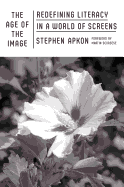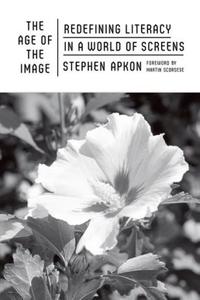

For Apkon, the founder and executive director of the Jacob Burns Film Center, literacy in any era requires one to be "conversant in the dominant expressive language and form of the age." For us, "awash in a world of screens and moving images," he asserts, that means developing a facility both for interpreting the visual images that surround us and for using the accessible and relatively inexpensive visual storytelling tools available to us. (A lengthy chapter serving as a "basic primer to visual storytelling" is an entertaining diversion, but it's probably too basic for anyone even casually familiar with the subject, while the discussion of the tools and techniques of filmmaking is perhaps overly technical for novices to absorb without the aid of a skilled instructor.)
Apkon offers a crisp summary of the evolving definition of literacy, from ancient French cave paintings to the modern film industry. He also provides an intriguing glimpse into cutting edge neuroscience, including a visit to a company using functional magnetic resonance imaging to measure the brain's response to visual stimuli. And he offers persuasive examples--such as the video of the murder of Neda Agha-Soltan amid protests following the 2009 elections in Iran--of the power anyone with a smartphone camera has to make a political statement that can rocket around the world in hours.
He concludes with a concise argument for why and how the U.S.'s sadly antiquated educational system must be reexamined "through the lens of visual communication"--starting with "a rethinking of how we measure both literacy and progress in this new sphere of literacy" in schools, focused on developing the "talent for using this technology in creative and thoughtful ways."
Stephen Apkon clearly intends The Age of the Image as an opening brief in a vigorous debate on reformulating our definition of literacy in the 21st century. In that effort, he's unquestionably succeeded. --Harvey Freedenberg
Shelf Talker: The founder and executive director of the Jacob Burns Film Center makes a vigorous argument for a new definition of literacy for a world saturated in visual media.

